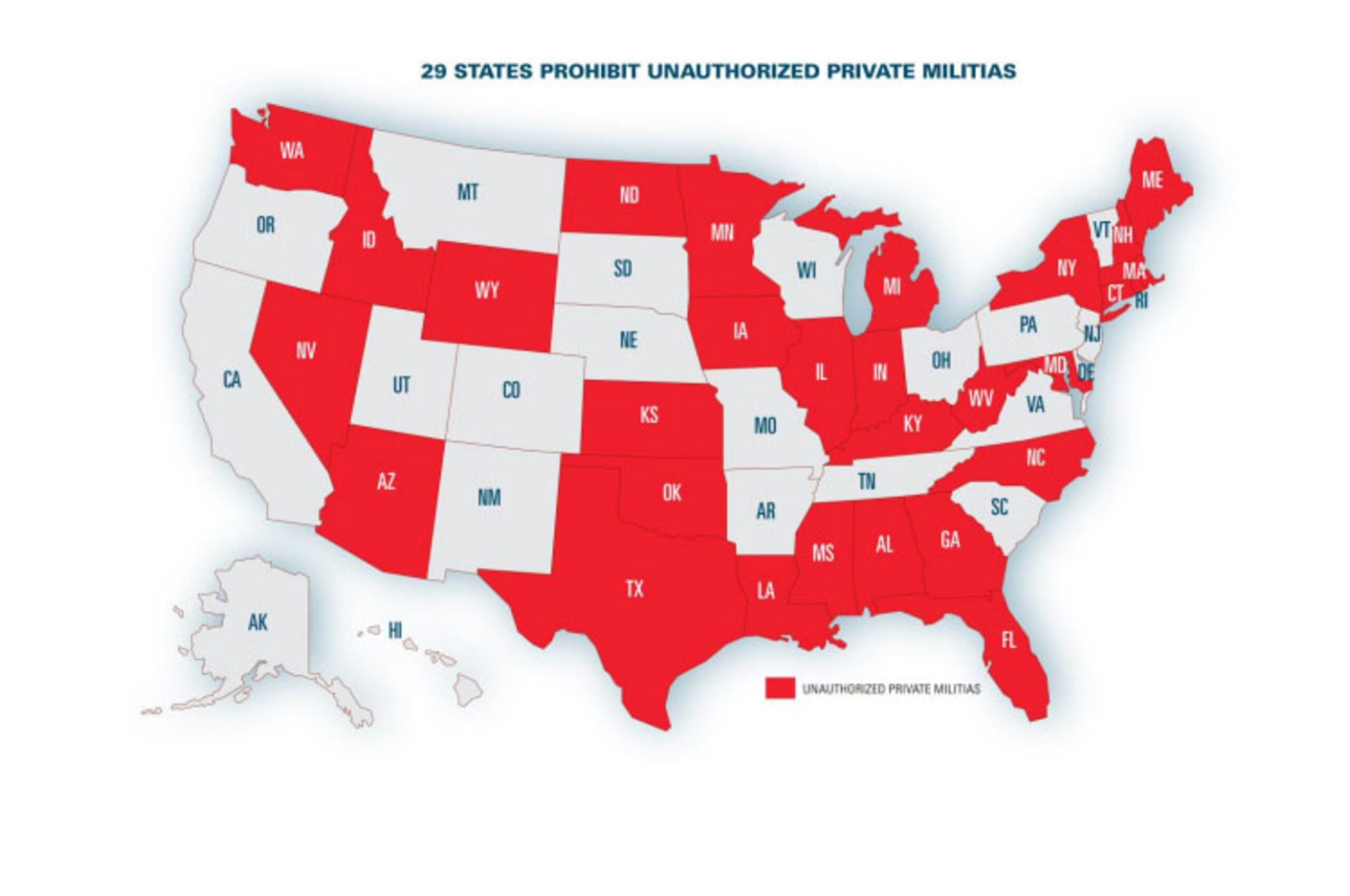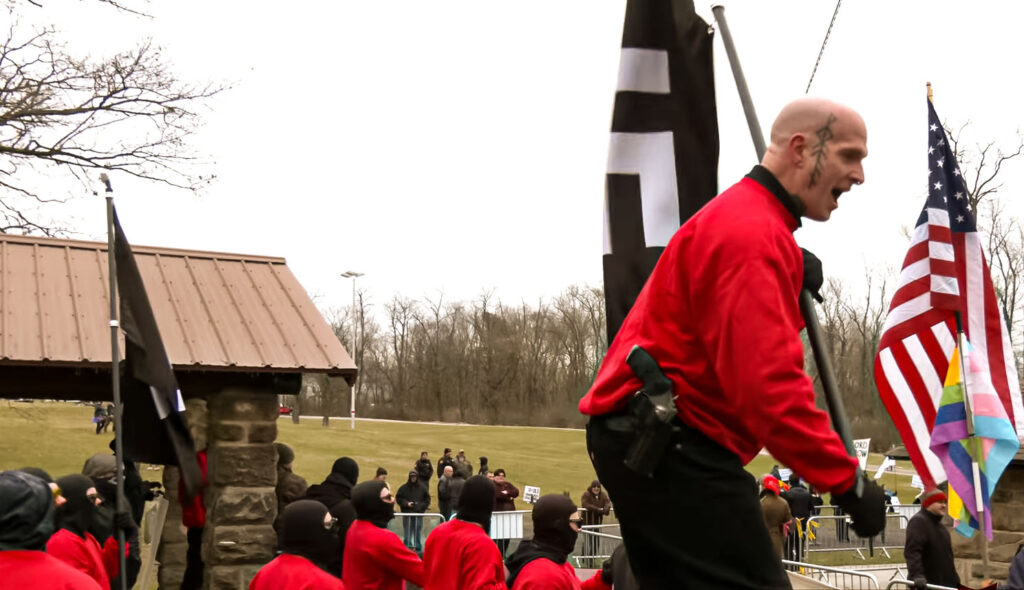
The state’s existing militia laws need more teeth before Maine law enforcement can act on recent calls to shut down a Springfield paramilitary encampment.
All 50 states have some sort of constitutional or statutory anti-militia provisions, but because many state laws date back decades, some to the Civil War, they are often not enforced or are limited in their scope, said Amy Marshak, legal director of the Georgetown University Law School Institute for Constitutional Advocacy and Protection.
Local law enforcement officials also do not always have adequate information to build cases or mistakenly believe that private militia activity is constitutionally protected, Marshak said.
The Supreme Court made it clear in 1886 and again in 2008 that the Second Amendment does not prevent the prohibition of private paramilitary organizations, she said.
This spring Oregon and Vermont joined 25 other states with statutes prohibiting paramilitary activities similar to the military and weapons training being conducted at neo-Nazi Christopher Pohlhaus’ encampment in Springfield. Maine’s current law does not have this provision.
“We need to consider legislation this spring and not wait any longer,” said Maine Sen. Joe Baldacci, D-Bangor, on Friday. “Our militia laws were written decades ago and this is a different kind of threat and the law needs to be updated for today.”
Earlier this week, Baldacci called on the state’s top law enforcement officials to shut down Pohlhaus’ Penobscot County paramilitary encampment that is training neo-Nazi initiates on 10.6 acres off the Bottle Lake Road near Lakeville.

Maine’s existing law prohibits unorganized militias from parading and drilling in uniforms with firearms in public. It also states that an organized militia must be recognized by the state, much like the earliest militias that protected colonists dating back to the early 1600s before Maine was a state. But state law will have to change in order to stop the kind of training going on in Springfield.
By the late 1600s, men from ages 17 to 60 were automatically enrolled in the militia that eventually became the Maine National Guard, according to the National Guard historical information.
Vermont’s new law was spurred by residents and town officials in the rural town of West Pawlet who were being intimidated by a paramilitary training encampment, Slate Ridge, in their town. For several years, the town had been trying to get the encampment owner, Daniel Banyai, to remove structures that did not have proper town permits.
Banyai is under court order to remove the structures and this week a judge denied his appeal request.
Aroostook County Sheriff Shawn Gillen said that law enforcement should question whether extremists are just doing their thing in the woods or if they are creating an encampment for illegal activity, which would give cause to investigate.
Gillen points to the possibility of illegal weapons, people at the encampment banned from possessing weapons because of prior convictions or those who have outstanding warrants from other states as reasons for local and federal law enforcement to become involved.
Pohlhaus, who has been inviting his neo-Nazi Blood Tribe followers to his encampment since last year for weapons and physical fitness training, has also not yet obtained permits for the structures he said he is building on the property, according to the Springfield code enforcement officer.

Since calling for the shut-down of Pohlhaus’ encampment, Baldacci said he has heard from hundreds of Mainers all over the state, including town officials, in support of his position against the neo-Nazi encampment.
“Included in that are people who live in Springfield and in nearby towns who have reached out to me and openly expressed their fear about the neo-Nazis in their community and are very much wanting help to deal with them,” he said. “No town in Maine or anywhere should be left under siege like this.”
Baldacci said that he spoke to Maine Rep. Laurie Osher, D-Orono, this week who is considering presenting legislation regarding paramilitary training.
The senator pointed to the recently enacted, LD 868, An Act to Extend the Protections of the Maine Civil Rights Act to Actions That Cause Emotional Distress or Fear of VIolence, as another potential means to stop Pohlhaus because he threatens violence.
According to the new law, the attorney general may bring a civil action for injunctive or other appropriate equitable relief under the following conditions: Physical force or violence against a person; damage or destruction of property or trespass on property; threatening physical force or violence against a person; threatening damage or destruction of property or trespass on property; or engaging in any conduct that would cause a reasonable person to suffer emotional distress or to fear death or bodily injury.
Pohlhaus posted Thursday on Telegram — an alternative encrypted message board — that the Nazi flag will fly again and he is training his white Blood Tribe followers for war.
“I’m not surprised by the actions of these people. They are like school yard bullies,” Baldacci said. “We need to stand up to this hatred to stop it.”







